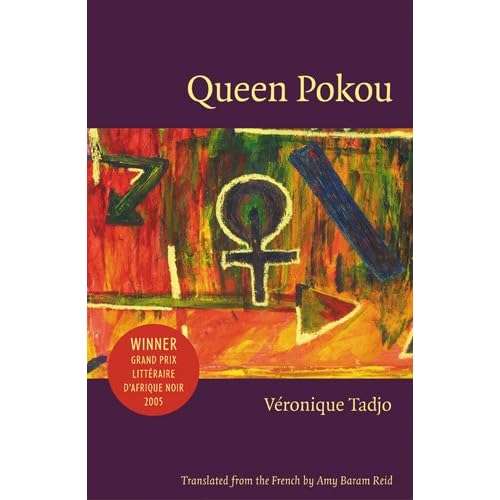“…working class intellectuals like big words and their sentence formation is excessively ornate. It’s what they think of as ‘smart.’ Pomposity. It’s an embarrassing condition of being unsophisticated and not knowing what is truly smart which is simplicity and modernism…” —Eileen Myles
“Context“
Power Quote: Judith Butler

It would be a mistake to think that received grammar is the best vehicle for expressing radical views, given the constraints that grammar imposes upon thought, indeed, upon the thinkable itself. But formulations that twist grammar or that implicitly call into question the subject-verb requirements of propositional sense are clearly irritating to some. They produce more work for their readers, and sometimes their readers are offended by such demands. Are those who are offended making a legitimate request for “plain speaking” or does their complaint emerge from a consumer expectation of intellectual life? Is there, perhaps, a value to be derived from such experiences of linguistic difficulty? If gender itself is naturalized through grammatical norms, as Monique Wittig has argued, then the alteration of gender at the most fundamental epistemic level will be conducted, in part, through contesting the grammar in which gender is given.
(from Gender Trouble, pages xix-xx)
11 wet velveeta on jar knuckles
11. In his craving for fame and fulfillment he dumped his family, bullied his friends, ripped off ideas and lied about his past. Charlie Sheen? No, Gauguin.
11. Seventy-one copies or eighty-two days remain to snort up Darby Larson’s The Iguana Complex. Go there.
11. Lorrie Moore weighs in on the Carmelo Anthony/New York Knicks trade.
1. Top 10 counter-culture books. At first I gandered and thought where is Trout Fishing? But it seems like this guy glows memoirs. I’ve read zero of them. Summer?
11. Your best guess: What the fuck is a personal library? It sounds like I am a book. We are not books, but the idea is comforting (beginning, middle, end–nice delusion…). Here’s a new one: What is on your personal library shelf right now that isn’t a book. I am going to go look right now: empty wine rack, candles with dust balls, 3 family photos (all three professional, posed bullshit photos), a gnome dressed as a Tennessee Titan, a plastic pumpkin (fuck, it stayed up since Halloween), a fake hollowed-out book that is a hiding spot for letters from a young lady in South Africa, a rope bracelet that protects you from sharks, __________, two deeds to automobiles, a buckeye, a single .44 bullet, a chocolate coin, a treasury bond. You?
The Many Faces of Queen Pokou

I just read a beautiful translation of Véronique Tadjo’s Queen Pokou by a prof here at New College, Amy Baram Reid. Amy was my professor fifteen years ago; one of my favorite classes in college was her course called New Worlds, New Stories: Women Writing in the Americas. As a matter of fact, I discovered one of my all-time favorite books, Michelle Cliff’s Free Enterprise, in that course, as well as developing a new appreciation for and understanding of gender politics through literature.
In Queen Pokou, Véronique Tadjo re-imagines the 18th-century Western African legend of Queen Pokou, who according to said legend, threw her baby into a river in order to appease the gods and save her exiled people. The river parted, Pokou’s followers crossed, and the Baole people were born out of Pokou’s cries: “Ba-ou-li. Ba-ou-li (The child is dead).”
This book exists as a series of concentric maybes. It’s beautiful in its rendering of the grief of a mother to, alternately, the fear-inducing power of a queen coming into her own. One iteration of Tadjo’s re-imagining, “The Atlantic Passage” asks, “But what if Abraha Pokou had refused the sacrifice?” and takes Pokou and her son to the Americas via the slave trade.
Being a big fan of retellings in their ability to redistribute power and deconstruct prohibitive worlds, I like what Amy Baram Reid says in the book’s afterword:
February 25th, 2011 / 2:26 pm
Your best guess: how many books in your personal library have you read more than once?
Percival Everett on Literary Politics

From a 2003 interview with Robert Birnbaum:
RB: And then there are the attacks on writers like Morrison and Salman Rushdie and DeLillo and now young guys like Franzen and Foer and it strikes me that they are being attacked by people who haven’t read them…
PE: It’s always easier to condemn something when you haven’t read it.
RB: But why get so worked up? On the other hand, maybe it’s a good thing that people are passionate about these things.
PE: If that’s really what they are passionate about? If somebody is really offended by the artistic sensibility of some writer that would be a great discussion. But if they are simply jealous of that person’s success or something personal, I don’t get it.
“Literature is language charged with meaning.”
From ABC of Reading
by Ezra Pound
Chapter Four
1
‘Great literature is simply language charged with meaning to the utmost possible degree.’
Dichten = condensare.
I begin with poetry because it is the most concentrated form of verbal expression. Basil Bunting, fumbling about with a German-Italian dictionary, found that this idea of poetry as concentration is as old almost as the German language. ‘Dichten’ is the German verb corresponding to the noun ‘Dichtung’ meaning poetry, and the lexicographer has rendered it by the Italian verb meaning ‘to condense’. READ MORE >



